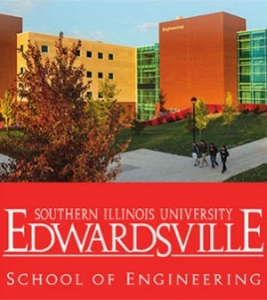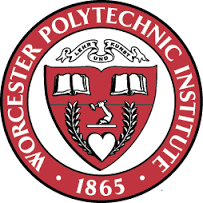This page features information about some of the well-established and newly-developed university and college degree/specialization programs in Mechatronics and Robotics. This is just a glimpse into such programs and not a comprehensive list by any means. More content and information can be found in the Mechatronics Education Forum's Repository.
M.S. in Mechatronics and Robotics
New York University Tandon School of Engineering
The M.S. degree in Mechatronics and Robotics will provide an interdisciplinary education to students through coursework, experiential learning, and project (or thesis) work. Students will learn fundamental theory, modeling methods, hardware components, interfacing requirements, simulation and programming tools, and practical applications of mechatronics and robotics. Specifically, real-world mechatronics and robotics systems will provide an avenue for physics-based system modeling. In addition to mechanical aspects, students will learn about building-blocks of mechatronics and robotics, i.e., sensing, actuation, computing technologies, and algorithms, thus being introduced to real-world tools used by practicing professionals. Having learned the fundamental theory, modeling, hardware, and programming tools through core courses, students can specialize in one of three areas, namely, assistive mechatronic and robotic technologies; mobile robotics; or microrobotics. All students will also acquire fundamentals of entrepreneurship through formal course work. All courses as well as project (or thesis) work will engage students in hands-on learning and explorations that will provide them with a comprehensive experience in systems integration and product development. Finally, the entrepreneurship activities will allow students to envision and gain an appreciation of the pathway from education to careers.
Mechatronics and Robotics Engineering
Southern Illinois University Edwardsville
Mechatronics and Robotics engineers create intelligent devices by combining mechanical and electrical engineering principles. They are shaping the future by designing smarter cars, autonomous farm equipment, robots for manufacturing industry, and many more. These devices have mechanical and electrical components, sensors and computer software, all working together harmoniously. As automation and robotics increase around us, so does the need for engineers with specialized knowledge of these topics. Mechatronics and robotics engineers have the interdisciplinary knowledge necessary to oversee the design and development of such intelligent devices from beginning to end, rather than completing mechanical, electrical, and control designs separately. While there are few B.S. programs in mechatronics and robotics in the US and several abroad, SIUE is the only such program in the State of Illinois and Midwest.
Mechanical and Mechatronics Engineering
University of Waterloo
The Mechatronics Engineering (MTE) program at University of Waterloo was developed as a joint effort between the three participating departments (ME, ECE and SYDE), to expand the Faculty of Engineering to meet the needs of industry specifically around Waterloo and in general in Canada. The program is designed to provide the students with a firm grasp of the fundamentals, and to integrate the various disciplines throughout the program. Our philosophy has been that, to be able to properly design systems that draw on the various traditional engineering disciplines, it is necessary to present and integrate these throughout all years of a comprehensive program. The program consists of 32 core technical engineering courses, 17 of which are provided by MME, 6 by ECE, and 5 by SYDE. There are 5 technical elective courses in the 4th year, from MME, ECE and SYDE. Combining in‐depth classroom learning with productive, paid work experience (Co‐op program) as well as various experiential learning opportunities such as engineering clinic and capstone design, the MTE program at University of Waterloo has earned a unique reputation for the quality of its graduates.
Robotics Engineering
Worcester Polytechnic Institute
With the first-of-its-kind bachelor’s degree in robotics engineering and one of the first such graduate programs in the nation, WPI is at the forefront of robotics education and research.
Our passion for robotics is evident in everything we do—we have a dedicated and enthusiastic faculty and staff along with strong industry connections; perform breakthrough research; provide hands-on work with robotic devices in our many state-of-the-art labs; prioritize space for experimentation; and foster competitive teams that routinely win national robotics awards. Our graduates leave well prepared to tackle the technical, social, cultural, and ethical challenges of a robotics workforce that remains dynamic and constantly changing.
Mechatronics Technology Center
New York City College of Technology
One of the problems that many engineering graduates face when looking for their first job is: do you have experience? Employers prefer graduates with relevant experience to those without. Why is experience so important to employers? Can students accumulate “working” experience while studying in college? The Mechatronics Technology Center (MTC) in City Tech provides a platform for students to engage in multidisciplinary design activities inside and outside of the classrooms to help students to gain “working” experience and skills through hands‐on design activities that simulate the actual design activities that occur in the industry. Faculty members from the Mechanical Engineering Technology and Computer Engineering Technology departments were involved in creating multidisciplinary design projects. The design projects provide students with new insights that relate what they learn in their coursework with actually design activities in the industry. The hands‐on mechatronics design activities also provided the students opportunities to sharpen their critical thinking and analytical skills, to practice concurrent engineering, to acquire people skills as well as management skills needed for the students when looking for employment.
More Mechatronics and Robotics programs:
- A.S. Degree in Mechatronics, Hillsborough Community College, Florida, USA
- Mechatronics Engineering, McMaster University, Ontario, Canada
- Mechatronic Systems Engineering, Lawrence Technological University, Michigan, USA
- Mechatronic and Robotic Engineering, The University of Sheffield, UK







